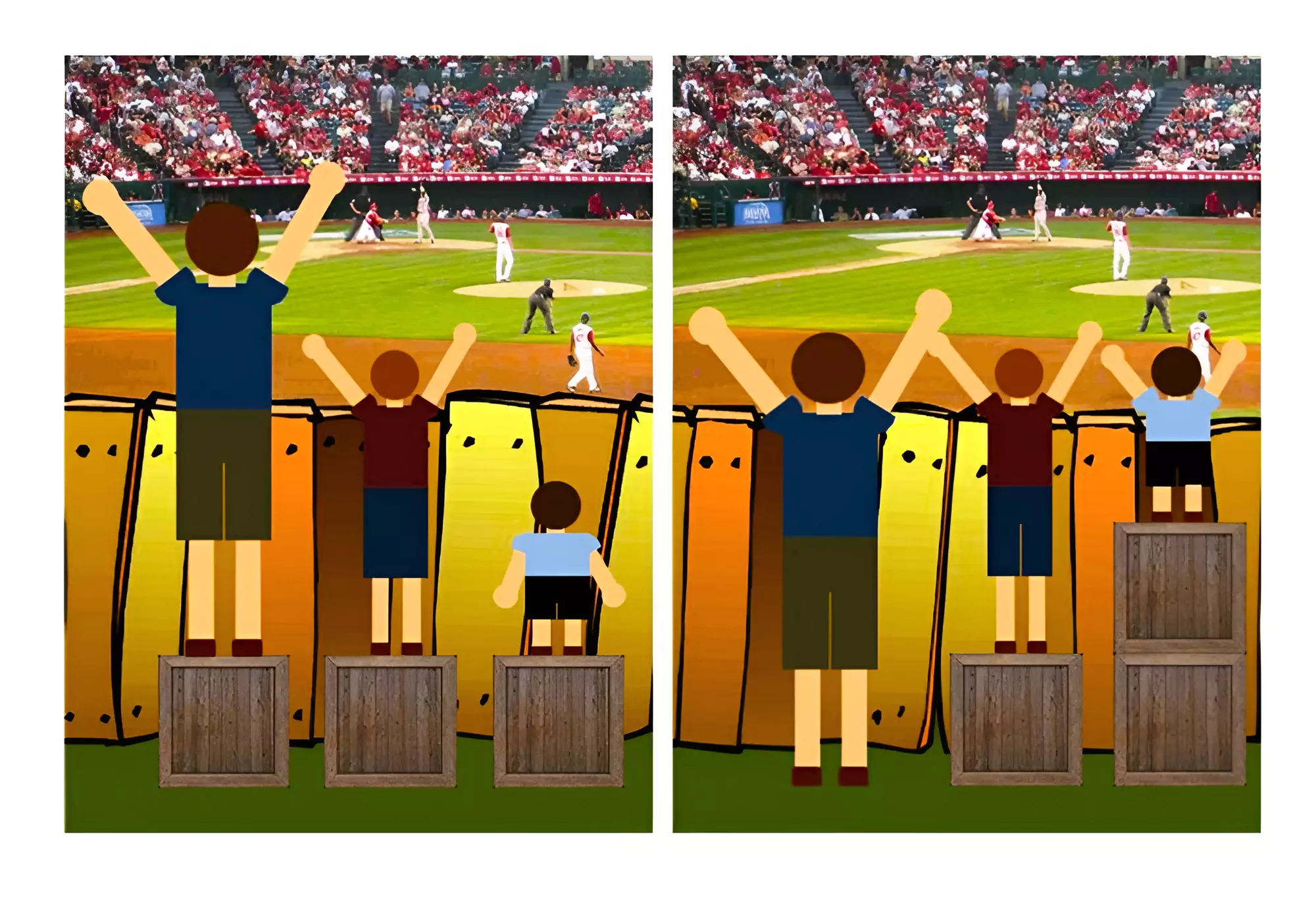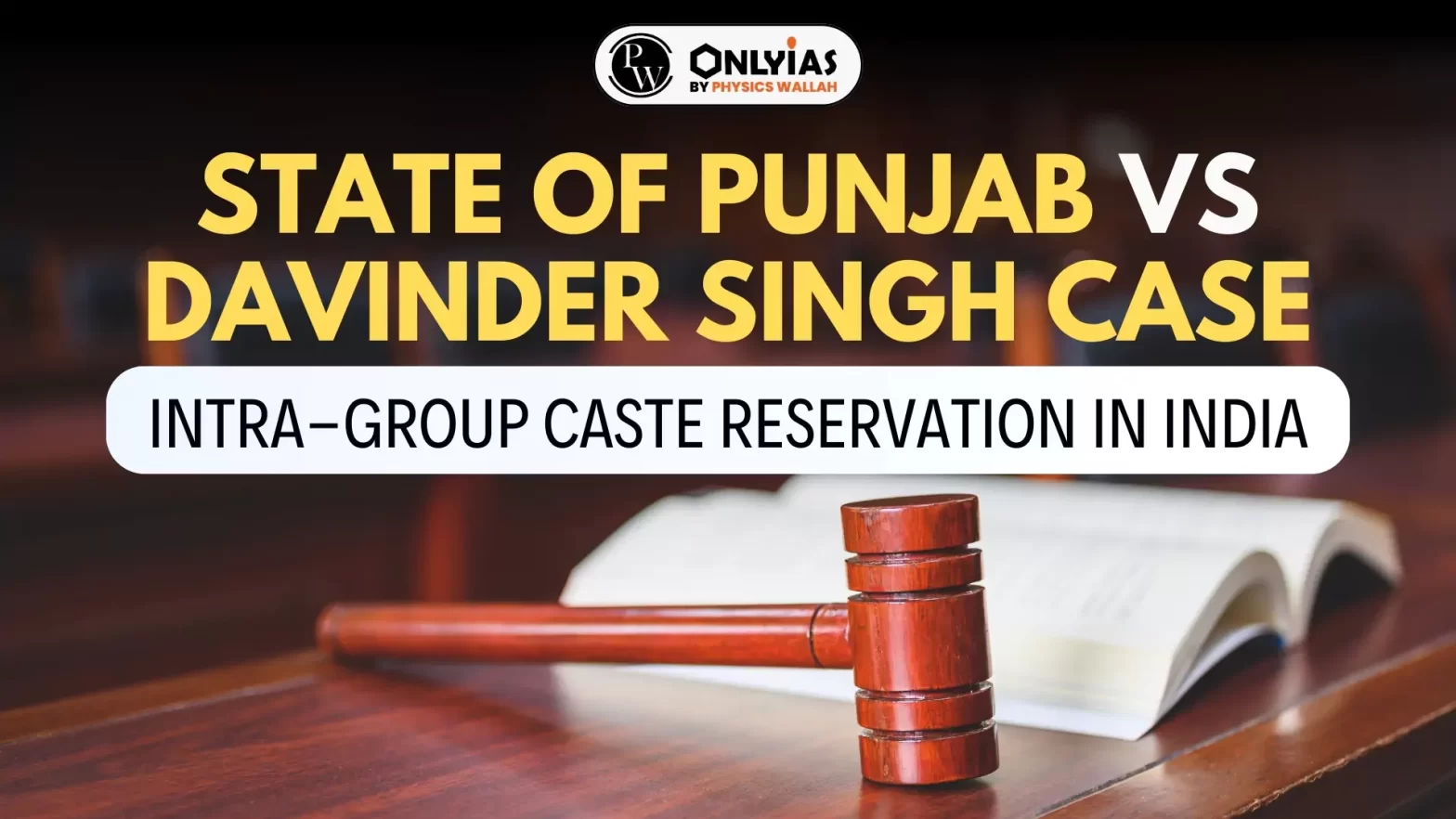Context
This editorial is based on the news “Intra-group caste variances, equality and the Court’s gaze” which was published in the Hindu. Soon, a judgement by a seven-judge Bench of the Supreme Court of India in ‘State of Punjab vs Davinder Singh Case’ will determine the future of affirmative action and reservations under the Constitution.
Background and Timeline of State of Punjab Vs Davinder Singh Case
- Issue: Whether State governments can make sub classifications within the proportion prescribed for Scheduled Castes and Scheduled Tribes in public employment recruitment.
- Disparities within SCs and ST’s: Studies show disparities within SCs and STs, suggesting that certain groups face more discrimination than others, prompting the need for State governments to have the power to recognize intra-group variances.
- 1975, A circular by the Punjab Government: Stipulating that 50% of the total reserved seats for Scheduled Castes (SCs) in the state will be offered to Valmikis and Mazhabi Sikhs, with the remaining half open to other SC groups.
- 2000, Andhra Pradesh enacts the Scheduled Castes (Rationalisation of Reservations) Act: It divides SCs into four distinct categories and grants each category a separate quota based on their backwardness.
- 2004, E.V. Chinnaiah vs State of Andhra Pradesh Judgement: A five-judge Bench quashed the Andhra Pradesh Scheduled Castes (Rationalisation of Reservations) Act, 2000, on the ground that it offended Article 341 of the Constitution.
- Article 341 of the Constitution: This provision allows the President of India to notify a list of SCs for each State, and stipulates that the list can only be modified by Parliament.
- In July 2006, the Punjab and Haryana High Court struck down this notification, following a judgement of the Supreme Court, in 2004 in E.V. Chinnaiah vs State of Andhra Pradesh.
- 2006: The Punjab and Haryana High Court strikes down Punjab’s 1975 circular following the Supreme Court’s judgement in the Chinnaiah case.
- 2006, The Punjab Scheduled Castes and Backward Classes (Reservation in Services) Act:
- Even though its 1975 circular was struck down, the Government of Punjab enacted a new law, i.e.
- The Punjab Scheduled Castes and Backward Classes (Reservation in Services) Act, 2006, which once again provided first preference to Balmikis and Mazhabi Sikhs.
- The High Court declared this law too to be unconstitutional.
- 2020: The Supreme Court, sitting on appeal over the decision regarding Punjab’s 2006 law, expresses doubts about the correctness of its earlier verdict in the Chinnaiah case.
- At Present: A seven-judge Bench is created for a fresh hearing on the issues raised in the State of Punjab vs Davinder Singh case.
Need For Fresh Hearing on the Issues Raised in the State of Punjab vs Davinder Singh Case

-
Promise of Substantive Equality:
- Articles 14 to 16 read together as a code, is a promise of substantive equality.
- This promise acknowledges historical discrimination based on caste in India.
-
State Of Kerala & Anr vs N.M. Thomas & Ors (1975):
- The Supreme Court, since its 1975 judgement in the N.M. Thomas’ case seems to recognize that governments have the power and duty to make reservations to correct historical injustices and ensure substantive equality.
-
Reservations:
- Reservations have to be seen as a means of furthering the goal of Equality.
-
Constitutionally Obligated:
- Therefore, if the Government of Punjab finds that its current reservation measures haven’t adequately benefited Valmikis and Mazhabi Sikhs, it is constitutionally obligated to correct them.
-
Article 341 Doesn’t Expressly Forbid Sub-Classification:
-
However, Article 341 Doesn’t Expressly Forbid Sub-Classification;
- It only prevents states from adding or removing castes from the President’s list of Scheduled Castes (SCs).
- So, if states provide special measures for certain castes on this list, it doesn’t affect the entitlement of other castes to general reservation provisions.
-
On Sub Classification:
-
- The Punjab law does not modify the President’s list.
- It merely accounts for inter-se backwardness within that list by providing for a greater degree of preference to Balmikis and Mazhabi Sikhs.
- This sub-classification is also in consonance that reasonable classifications are permissible to ensure that equality is achieved.
Conclusion
The Supreme Court must heed its recognition in N.M. Thomas that governments have the power and duty to make reservations while striving for equality. Therefore, any state authority to offer special measures to the most discriminated castes within SCs and STs should be seen as promoting equal opportunity.
Also Read: Sub Categorisation Within Castes
| Prelims PYQ (2023):
Consider the following statements:
Statement-I: The Supreme Court of India has held in some judgements that the reservation policies made under Article 16(4) of the Constitution of India would be limited by Article 335 for maintenance of efficiency of the administration.
Statement-II: Article 335 of the Constitution of India defines the term ‘efficiency of administration’. Which one of the following is correct in respect of the above statements?
(a) Both Statements-I and Statement-II are correct and Statement-II is the correct explanation for Statement-I
(b) Both Statement-I and Statement-II are correct and Statement-II is not the correct explanation for Statement-I
(c) Statement-I is correct but Statement-II is incorrect
(d) Statement -I is incorrect but Statement -II is correct
Ans: (c) |
![]() 13 Mar 2024
13 Mar 2024


